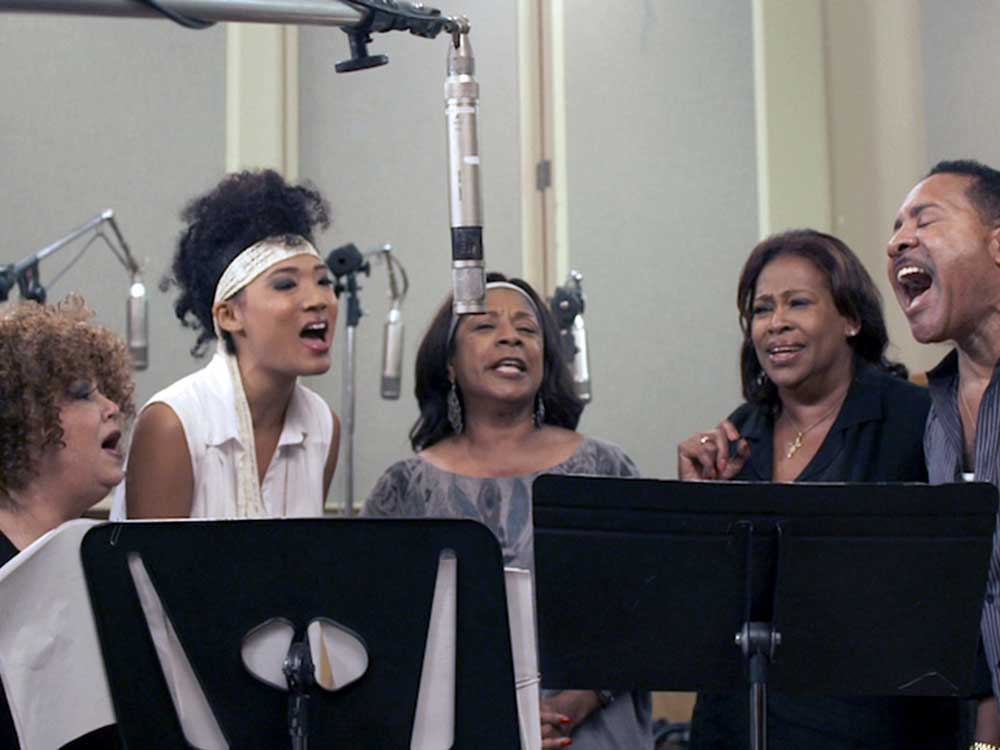‘Twenty Feet from Stardom’ screens in Bend
Published 12:00 am Sunday, March 15, 2015

- Submitted photoTata Vega, from left, Judith Hill, Merry Clayton, Julia Waters, and Oren Waters singing in “Twenty Feet from Stardom”
Morgan Neville’s 2013 documentary film “Twenty Feet from Stardom” focuses on the lives and careers of a handful of background singers, including Judith Hill, Merry Clayton, Lisa Fischer, Táta Vega and Jo Lawry. But as it unfolds, one woman emerges from the shadows and becomes the star of this movie about the voices behind the stars.
Darlene Love thinks she knows why “Twenty Feet” focused in on her.
“What made my part in the movie so good was they had so much film on me out there … and they didn’t have a lot of film on all the other singers,” she said in a telephone interview from New York City. “So that really did help boost me out there into the spotlight, bigger than life.”
She’s being modest. Filmmakers no doubt had access to plenty of footage of Love, thanks to her five-decade career in music. But on the list of reasons Love shines in “Twenty Feet,” plentiful footage would unquestionably fall somewhere behind her vibrant personality and her transcendent singing voice.
Love’s role in “Twenty Feet” makes sense on the surface; she spent years working as a hired vocalist for some of the greatest names in music history, such as Elvis Presley, Marvin Gaye, the Beach Boys and Tom Jones. But the rise she has experienced the past decade or so makes for an odd juxtaposition with the film, which won the Oscar for Best Documentary Feature in 2014 and will screen at Bend’s Tower Theatre on Monday (see “If you go”).
“‘Wait a minute,’” Love says, mimicking a common reaction to the contrast. “‘She’s not 20 feet from stardom! She’s there!’”
Indeed, Love has enjoyed a major late-career resurgence, but it came decades after a decidedly rocky start. In the 1960s, she sang on a number of hits, many under the guidance of producer Phil Spector, but what should have been her biggest — 1962’s “He’s a Rebel” — was credited to The Crystals, and not Love’s own group, The Blossoms. In 1963, her iconic version of “Christmas (Baby Please Come Home)” appeared on Spector’s famous 1963 holiday compilation album.
After years of singing, recording and not always getting the credit or revenue she deserved, Love left the industry in the 1970s to raise her family.
In the 1980s, she moved from her native Los Angeles to New York City, where she diversified, performing in Broadway productions, playing Danny Glover’s wife in the “Lethal Weapon” movies and singing “Christmas (Baby Please Come Home)” on David Letterman’s late-night TV program every year (except one, during a writer’s strike), from 1986 to 2014.
In 2011, Love finally received the recognition she deserved for her contributions to popular music when she was inducted into the Rock and Roll Hall of Fame. Last year, she was the highlight of the Academy Awards broadcast when she belted out the gospel hymn “His Eye is on the Sparrow” during the “Twenty Feet” acceptance speech.
Love, 73, said she didn’t jump at the chance to participate in the making of the documentary, but that she took producer Gil Friesen’s call after two friends — music executive Lou Adler and “Lethal Weapon” director Richard Donner — encouraged her to do so.
“I don’t even know today if I would’ve done that had it not been for them,” she said. “And it worked out. I started talking to (Friesen) on the phone and two hours later, we were still talking about it.”
Love liked Friesen’s idea but felt he had a lot of work to do. Once crews started coming to New York to film her, she realized the movie was not only going to materialize, it was going to be good.
And it is. In his review for Variety, Peter Debruge called “Twenty Feet” a “personality-packed docu (that’s) nothing short of absorbing as it recaps the essential role African-American background singers played in shaping the sound of 20th-century pop music.” David Edelstein of New York Magazine praised the film’s “ecstatic convergence of lung power and spirit.”
For 90 minutes, “Twenty Feet” digs into the careers of Love and her peers, incorporating performance footage from the distant and recent past, as well as interviews with superstars Bruce Springsteen, Mick Jagger and Sting.
Ultimately, it’s a story not about anonymity or almosts, but about dedication to craft, being a team player and, above all, perseverance.
That’s another reason Love stands out in the film.
“It’s amazing, most of those girls that were background singers ended up saying, ‘Forget it. It’s too hard. I’m going do something else.’ And I just kept chuggin’ along,” she said. “It has been a struggle … but I’ve gotten through it, and the movie makes that great. You can be there in all the struggles that (I) went through. But (I) escaped it. (I) moved on.”
— Reporter: 541-383-0377, bsalmon@bendbulletin.com






